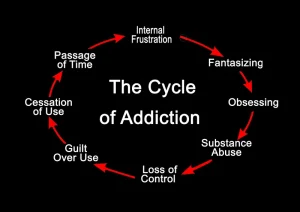
Research shows that the prognosis for BPD is good, especially for those who seek treatment through specialized therapy. The most popular and most effective form of therapy for BPD is https://ecosoberhouse.com/ (DBT). This form of therapy was created for people with borderline personality disorder in mind. Dialectical behavioral therapy (DBT) first appeared in the 1990s for treating borderline personality disorder (BPD) and suicidal behaviors. Today, mental health professionals use it to treat other complex conditions and issues as well. In DBT, the patient and therapist work to resolve the apparent contradiction between self-acceptance and change to bring about positive changes in the individual in treatment.
- It is a structured treatment that involves individual therapy, group work, and phone consultations.
- DBT is an evidence-based treatment program designed to help people with mental health conditions who have problems regulating emotions.
- In individual sessions, patients review difficult situations and feelings they faced the prior week and engage in problem-solving by actively discussing ways of behaving that might have delivered a positive outcome.
- The calls are usually brief, and they shouldn’t replace the work of individual or group sessions.
- The evidence shows effectiveness in reducing self-harm, more treatment adherence, less time in treatment, fewer serious episodes, and patients have reported feeling better.
Mindfulness
This is particularly true in times of extreme stress and when you experience suicidal or impulsive behaviors. If an individual does not feel that DBT is working for them, they should consider trying one of the many other types of therapy. A doctor or mental health professional can advise on their options.
What’s the theory behind DBT?
It’s a common therapy for people with borderline personality disorder, but therapists provide it for other mental health conditions as well. One of the greatest challenges for the treatment dialectical behavioral therapy of mental health problems is the accessibility of services. In some cases, the mental health difficulties themselves make it difficult for individuals to access services.
People Are Reading
Read on to learn more about the use of DBT for addiction and how it is a form of therapy which is often used during treatment for alcohol. CBT aims to change negative thought processes to impact mood and behaviors positively. Research indicates that CBT is an effective treatment for depression, anxiety, substance misuse, eating disorders, and more. DBT videos can be a valuable resource for learning and practicing skills, especially when used alongside our free workbooks. However, if you’re struggling with a mental health condition or find it difficult to manage your emotions on your own, seeking professional help from a qualified DBT therapist is crucial. They can provide personalized guidance, support, and ensure you’re using the skills effectively.
Everything to know about dialectical behavioral therapy
Individual sessions usually last an hour; group meetings, usually consisting of four to 10 people, are designed to run for an hour and a half to two hours. DBT is present-oriented and skills-based, and patients are asked to practice their skills between sessions. Patients can expect homework assignments, which might, for example, focus on taking specific, concrete steps to master relationship challenges.


DBT has also been shown to be beneficial in helping those who struggle both with bipolar disorder and substance abuse, the journal Psychiatry further publishes. In studies of people diagnosed with bipolar disorder who also struggled with substance abuse, people abused drugs less often when being treated with DBT. Some people with co-occurring conditions such as anxiety or depression may benefit from taking antidepressants.

- This group is often a step-down for youth and caregivers completing the Adolescent DBT IOP track, though patients may be admitted to this group directly, depending on needs.
- CBT has a long track record of success, with hundreds of studies confirming its effectiveness.
- In turn, these skills increase interpersonal effectiveness, or the ability to interact with others.
- This is particularly true in times of extreme stress and when you experience suicidal or impulsive behaviors.
- Treatment from a provider who is not appropriately qualified may simply be unsuccessful but may also cause harm.
As a team, you and your therapist will identify behaviors you’d like to decrease along with behaviors you’d like to increase. For example, someone might use DBT to address behaviors related to alcohol use or binge eating disorder. It’s also important to address behaviors that interfere with therapy and prevent you from making progress. Therapy-hampering behaviors can include anything from missing appointments to arriving late or not completing homework. To prevent impulsive or self-harming behavior, this module also teaches you constructive, in-the-moment alternatives.
Each week, the individual will typically complete a diary card, or self-monitoring form, to track their various treatment goals. Learning to regulate emotions can help people to deal with conflict and to communicate more assertively. In turn, these skills increase interpersonal effectiveness, or the ability to interact with others. During stage 2, individuals will work on their emotional pain and traumatic experiences.
- Dialectical behavior therapy (DBT) is a type of talk therapy for people who experience emotions very intensely.
- Impulsive behavior such as substance abuse, unsafe sex, or overspending can be common challenges when you live with borderline personality disorder.
- If your problems are common, like stress or anxiety, you can start with online videos of mindfulness exercises to see if they help.
- In these sessions, your therapist will teach you skills in a group setting.
- DBT was developed for people with borderline personality disorder.
- However, if you’re struggling with a mental health condition or find it difficult to manage your emotions on your own, seeking professional help from a qualified DBT therapist is crucial.
What is the outlook for people treated with DBT?

Distress tolerance and acceptance techniques could help you with self-soothing techniques or radical acceptance. Emotional regulation can help you balance emotional urges with their opposites. And interpersonal effectiveness skills might help you be more assertive with your boss, set boundaries or find another job. Dialectical (the D is DBT) meets opposites, and comes from the idea of combining two of those ideas – change and acceptance.